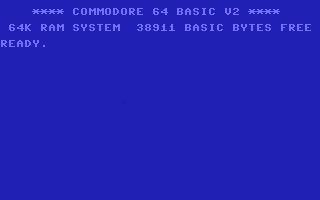Classic Games Emulation | News | Systems | Emulation | Emulators | Games | Links
The Commodore 64

The Commodore 64 was one of the most popular home computers ever, and also one of the greatest game platforms. It had incredible graphics and sound for its day, as it utilized the custom VIC graphics and SID sound chips. And it had an incredibly low price, being almost as cheap as most game consoles but with the flexibility of a computer (unlike today's comparatively expensive PCs).
It also had the benefit of some of the best game developers, particularly Epyx. Although they developed and released their games for many platforms, it was usually the Commodore 64 versions which seemed the most memorable (their Games series are still some of my favorite games).
The Commodore 64 quickly endeared itself to the market. It has been claimed that the C64 was
the most popular home computer ever. But at any rate, by the early nineties, it was aging, and finally,
stores and software dealers just stopped selling it and its software. Commodore finally discontinued
production around 1992. ![]()
The Commodore 64: Technical Details
Classic Games on the Commodore 64
Commodore 64 Links
About CGE (including contact information)
Created April 16, 1998. Last updated June 7, 1998.